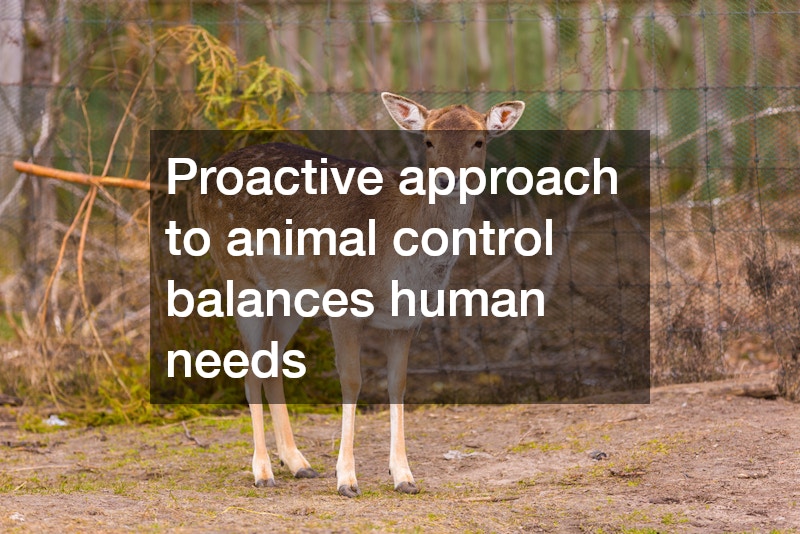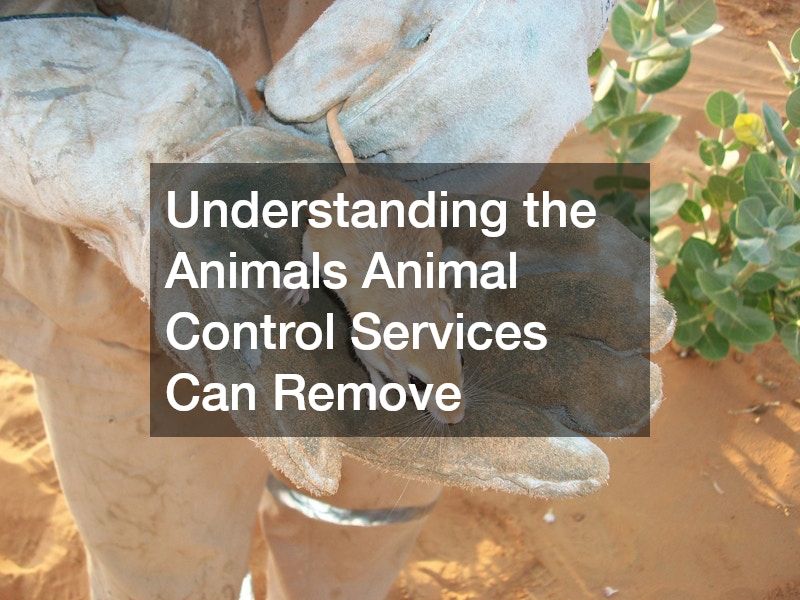Animal control companies play a crucial role in maintaining balance and safety within communities. Their ability to manage and remove various animals is vital as it prevents potential harm and disturbances. These services help mitigate conflicts between humans and wildlife, ensuring both coexist without excessive tension or danger.
Effective animal control practices contribute significantly to public health by reducing the risks of disease transmission. Communities benefit from fewer encounters with aggressive or potentially dangerous animals, fostering a sense of security. Therefore, understanding the breadth of services offered by animal control is essential for appreciating their impact on communal well-being.
Through education and support, communities can enhance their living environments while preserving local ecosystems. Encouraging humane approaches to animal management reflects a commitment to ethical practices. As urban areas expand, the interface between human settings and wildlife becomes more pronounced, necessitating reliable animal control measures.
What Types of Animals Do Animal Control Services Typically Handle?
Animal control services frequently encounter species that adapt well to urban and suburban environments. Raccoons are a prime example, often drawn to human habitats in search of food and shelter. Their curious nature leads them to explore trash cans and attics, which can cause significant damage and inconvenience.
Bats are another common animal managed by control services due to their potential as carriers of rabies. While bats are generally beneficial as they control insect populations, their presence in human dwellings can pose health risks. Ensuring bats are relocated safely is part of the crucial work conducted by animal control professionals.
Opossums are often captured due to their opportunistic habits and ability to thrive in various environments. While they pose minimal threat, their scavenging behavior can lead to property damage, necessitating intervention. Animal control services address these encounters by implementing humane and effective solutions.
Are There Specific Situations Where Animal Control Services Are Required?
Certain situations demand immediate attention from animal control services to ensure community safety. Contact with aggressive animals poses immediate dangers that require professional handling to prevent further incidents. Animal control officers are trained to assess and manage such risks, protecting both humans and the animals involved.
Potential rabies carriers, such as certain wildlife species, necessitate swift and secure removal from populated areas. Rabies is a serious health concern, and timely intervention can prevent its spread. Animal control services work diligently to mitigate these threats through strategic captures and relocations.
Encounters with large wildlife also highlight the need for professional animal control interventions. Large animals, when displaced, can inadvertently cause property damage or endanger human life. Through their expertise, animal control teams safely reintroduce these animals to suitable habitats, preserving both community safety and wildlife integrity.
How Do Animal Control Services Ensure Safety During Removal?
The safety of both humans and animals is a top priority during removal operations, thanks to established protocols. Animal control services employ a variety of methods that prioritize minimal stress and harm, using traps and tools designed for humane captures. Trained professionals follow stringent guidelines to execute these operations with precision and care.
Personal protective equipment is critical in ensuring the safety of animal control officers during removals. This equipment shields them from potential injuries and diseases, allowing for safe interactions. Through preparation and vigilance, officers manage each situation effectively, reducing risks for all parties involved.
An important aspect of animal control operations is the focus on relocation rather than extermination. By opting for relocation, animal control services maintain ecological balance and promote humane treatment. This approach reflects an understanding of the importance of wildlife in broader ecosystems, demonstrating a commitment to ethical practices.
Professional animal control services are indispensable in managing wildlife interactions within human environments. They address issues ranging from nuisance behaviors to public health concerns, utilizing safe and humane removal tactics. As such, their efforts are critical in fostering safer and healthier communities.
As urban development continues, supporting animal control services through resources and engagement becomes even more essential. By acknowledging the challenges these services face, communities can work together to create sustainable coexistence strategies. Educational initiatives and public awareness programs can further enhance understanding and appreciation of this vital work.
Ultimately, communities benefit from a proactive approach to animal control that balances human needs with wildlife preservation. Encouraging collaboration and ongoing support ensures that both goals are realized effectively. As a result, professional animal control services remain a cornerstone of community safety and ecological stewardship.
.




